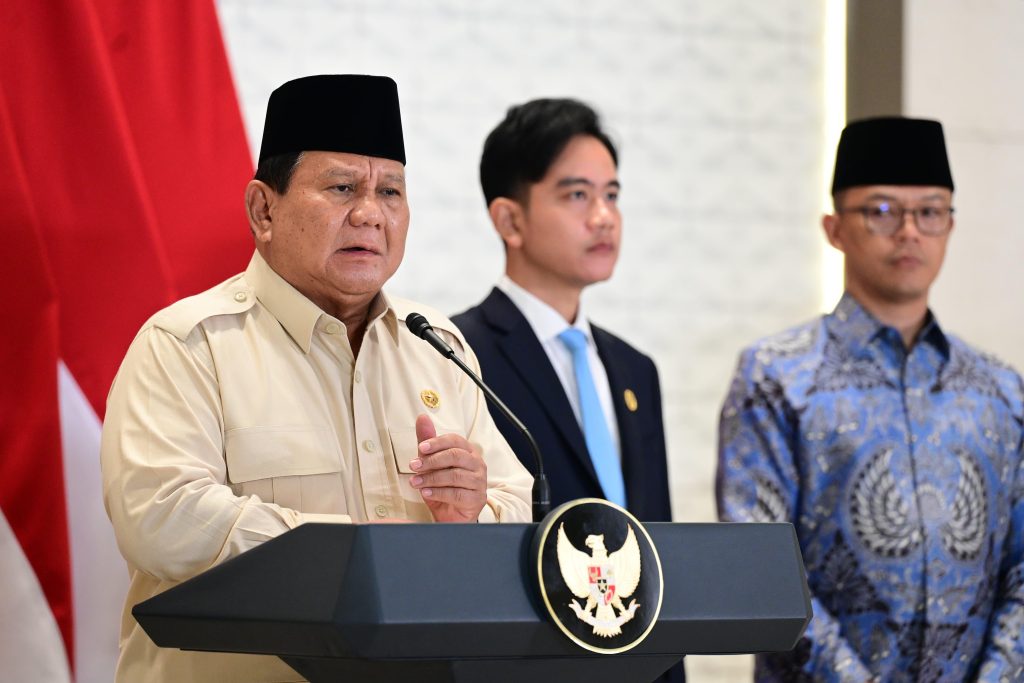Indonesia’s position on the Middle East conflict
The principle of free and active as the basis of policy
Indonesia’s position on the Middle East conflict always refers to the principle of free and active foreign policy. This principle emphasizes that Indonesia is not bound to any bloc or alliance, but remains active in encouraging a peaceful resolution of every conflict. This is reflected in Indonesia’s attitude which does not immediately support one party in the conflict, but encourages dialogue and peace negotiations. Free and active does not mean passive or neutral in the sense of allowing the conflict to occur, but places Indonesia as a constructive mediator on the international stage.
Indonesia’s attitude on the issue of Palestine and Israel
The issue of Palestine is the main focus of Indonesia’s position on the Middle East conflict. Since the era of President Soekarno until now, Indonesia has consistently supported Palestinian independence and rejected Israeli colonization. This support is based on the 1945 Constitution which emphasizes that colonization in the world must be abolished. Indonesia is also active in the UN forum and the Organization of Islamic Cooperation (OIC) to encourage a two-state solution. However, Indonesia continues to take the path of diplomacy and humanity, not a military approach, in responding to this conflict.
Indonesia’s policy on the Syrian and Yemeni conflicts
In addition to Palestine, Indonesia’s position on the Middle East conflict is also seen in its response to the civil war in Syria and the humanitarian crisis in Yemen. In these two conflicts, Indonesia has shown a cautious attitude by not interfering in the domestic affairs of other countries, in accordance with the principle of non-intervention. However, Indonesia continues to contribute through humanitarian aid and calls for a ceasefire in various international forums. This step reflects Indonesia’s commitment to maintaining global peace without violating the sovereignty of other countries.
Indonesia’s role in Middle East diplomacy
Diplomacy is key to Indonesia’s position on the Middle East conflict. The Indonesian government often sends representatives to countries involved in the conflict to encourage a peaceful solution. For example, Indonesia was once an unofficial mediator in a dialogue between Palestinian factions. Indonesia is also actively strengthening bilateral relations with countries in the Middle East such as Saudi Arabia, the United Arab Emirates, Iran, and Qatar. In every state visit, the issue of regional stability is always an important topic highlighted as part of Indonesia’s position on the Middle East conflict.
The influence of Muslim solidarity on foreign policy
As a Muslim-majority country, sentiments of Muslim solidarity also influence Indonesia’s position on the Middle East conflict. Indonesian society often holds solidarity actions for Palestine, Syria, or Yemen. The government cannot ignore this public pressure, so foreign policy often reflects concern for fellow believers in conflict areas. Even so, Indonesia maintains a balance so as not to get caught up in identity politics alone. A rational and diplomatic approach is still upheld in Indonesia’s position on the Middle East conflict.
Indonesia’s response to the conflict between Iran and the West

Tensions between Iran and Western countries, especially the United States, have also become part of the dynamics of Indonesia’s position on the Middle East conflict. Indonesia has never explicitly sided with Iran or the US, but has emphasized the importance of de-escalation and diplomatic solutions. In several international forums, Indonesia has called for respect for the Iran nuclear agreement (JCPOA) and rejected unilateral actions that could worsen the situation. This approach is consistent with the spirit of active freedom that rejects the domination of one power over another.
National interests and economic relations
In addition to ideological and humanitarian aspects, economic interests are also a consideration in Indonesia’s position on the Middle East conflict. This region is a major source of global energy and an important trading partner for Indonesia. Stability in the Middle East has a direct impact on world oil prices which can affect the national economy. Therefore, Indonesia has an interest in maintaining good relations with all parties, including countries that are politically opposed to each other. In this case, Indonesia’s position on the Middle East conflict is determined by the balance between idealism and pragmatism.
Read Also: Luta de Galo a unique traditional game from Brazil
The role of civil society and humanitarian organizations
No less important, Indonesia’s position on the Middle East conflict is also reflected in civil society activities. Institutions such as ACT, MER-C, and Baznas actively raise funds and send aid to conflict areas. The government supports this initiative as part of humanitarian diplomacy. This movement strengthens Indonesia’s image as a nation that cares and empathizes with the suffering of the people in the Middle East. Even in a crisis situation, the role of civil society expands the influence of Indonesian diplomacy informally in the eyes of the international world.
Social media and public information issues
In the digital era, public opinion is greatly influenced by social media. The narratives that develop about the conflicts in Gaza, Syria, or Iran greatly influence the attitudes of the Indonesian people. The government must also be careful so that Indonesia’s position on the Middle East conflict is not manipulated by false information. The Ministry of Foreign Affairs often provides official clarifications and open statements to ensure that the public understands the direction of policy correctly. This is important to prevent polarization within the country that could weaken the national consensus in foreign affairs.
Indonesia’s relations with global powers
In dealing with the conflict in the Middle East, Indonesia also considers relations with global powers such as the United States, Russia, and China. Indonesia tries to maintain a constructive and non-antagonistic position. In UN Security Council or G20 sessions, Indonesia tries to voice justice without creating hostility. When Indonesia’s position on the Middle East conflict is considered, diplomats must be able to maintain diplomatic balance in order to protect the country’s long-term interests.
Indonesia’s contribution to UN peacekeeping missions
Indonesia is one of the largest contributors of peacekeeping troops under the UN, including in the Middle East region such as Lebanon (UNIFIL). This is a real manifestation of Indonesia’s position on the Middle East conflict which emphasizes peaceful resolution and protection of civilians. This participation also strengthens Indonesia’s reputation as a country that prioritizes world stability and peace. Thus, Indonesia’s position on the Middle East conflict is not only manifested through rhetoric, but also concrete actions in the field.
Indonesia’s soft power in the eyes of the Islamic world
Indonesia is often seen as a model of a moderate, democratic Muslim country. This image provides strategic value in building Indonesia’s position on the Middle East conflict. With a cultural and educational approach, Indonesia offers an alternative conflict resolution that does not rely on military force. Several countries in the Middle East have even invited Indonesia to assist in educational reform or strengthen interfaith cooperation. In this context, the Most Complete Games Site may not be a direct part of formal diplomacy, but the development of digital entertainment technology has helped shape the global perception of a peaceful and inclusive Indonesia.


